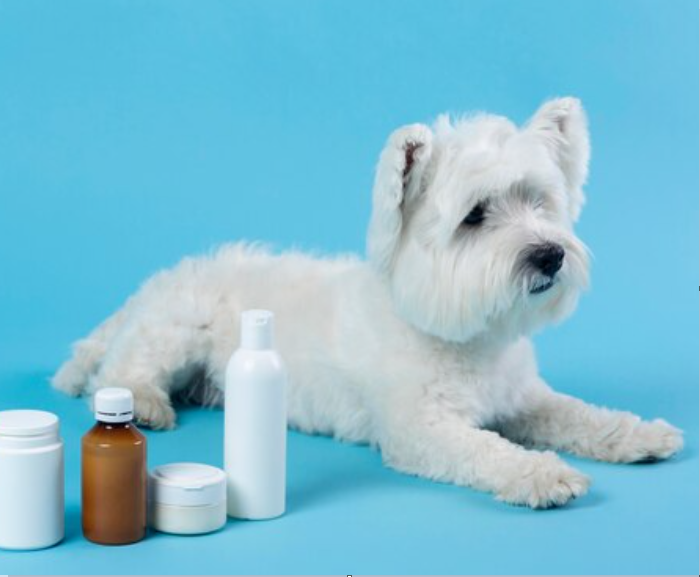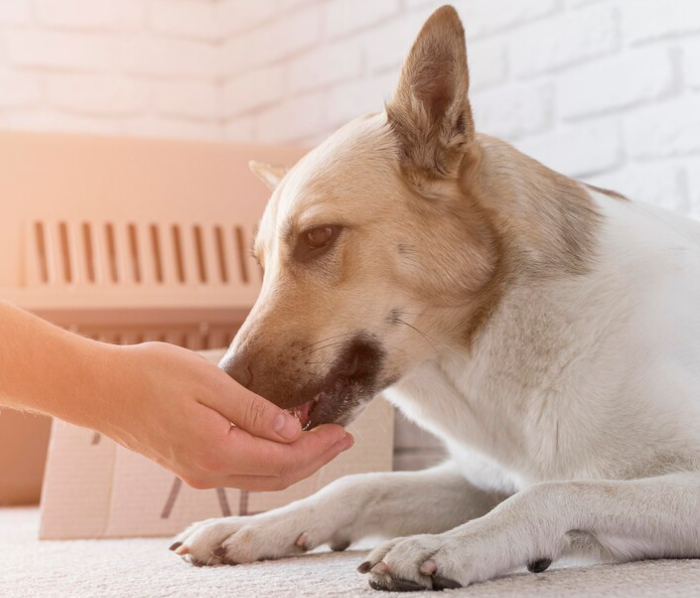2024-05-27
“Healthy lifestyle” has become the motto of many people and gained popularity in the last few years. Eating healthy, adding supplements, avoiding certain foods- in the realm of health, proper nutrition has become the ultimate tool leading to a happy life.
If you have realized the importance of good nutrition, it is quite normal to want to feed your beloved pet healthy food too! Certain terms have started appearing in discussions about nutrition, making pet owners wonder if their efforts in providing high-quality living conditions for their dogs are sufficient.
“Probiotics” and “prebiotics” are among the terms related to the topic of “healthy nutrition”, that most of you may have already heard of. Although they are often used interchangeably, they have different meanings. Let’s find out what these terms actually mean and why they are so important.

Probiotics are living microorganisms, mainly bacteria and yeast, that contribute to the balance of the gut microbiota, also known as gut microbiome or gut flora. They provide health benefits when administered in adequate amounts.
The gut microbiota, or simply put the microorganisms that can be found in the digestive tract, plays an essential role in supporting digestion, immune function, and overall well-being.
Probiotics maintain the balance of good bacteria in the gut. They aid in the digestion and absorption of nutrients, prevent the overgrowth of harmful bacteria, and support a healthy immune system. Common probiotic strains for dogs include Lactobacillus acidophilus, Bifidobacterium animalis, and Enterococcus faecium.
Research supports the idea that probiotics can be beneficial for dogs with various digestive issues, including diarrhea, irritable bowel syndrome (IBS), and inflammatory bowel disease (IBD).
Additionally, they can be helpful to our paw friends during times of stress due to changes in the environment, their diet or travel, or after taking antibiotics that may disrupt the natural balance of gut bacteria.

Prebiotics, on the other hand, are compounds in food, usually non-digestible fibers, that serve as nourishment for the beneficial bacteria in the gut.
While probiotics introduce good bacteria into the digestive system, prebiotics provide the necessary nutrients to support the growth and activity of these bacteria.
Simply put, prebiotics act as a fertilizer for the probiotics.
Common prebiotics include inulin, fructooligosaccharides (FOS), and oligofructose. These substances are not broken down during digestion but instead reach the colon where they are fermented by bacteria, promoting the growth of beneficial microorganisms.
Prebiotics contribute to overall digestive health by enhancing the production of short-chain fatty acids, which serve as an energy source for the cells that cover the colon. They also help regulate bowel movement and improve the absorption of nutrients.
In summary, we would say that while probiotics are beneficial live microorganisms in the digestive system, prebiotics provide the necessary food for these microorganisms to thrive. Both play essential roles in maintaining a healthy gut environment for dogs.
Always keep in mind that before adding probiotic or prebiotic supplements to your dog’s food, it’s advisable to consult a veterinarian. This will help ensure they are suitable for your dog’s specific health needs.

Just like in humans, antibiotics can disrupt the balance of beneficial bacteria in dogs’ gut too. Combining probiotics and prebiotics after a course of antibiotics can help restore the balance and support overall gut health.
Please remember to consult with your dog’s veterinarian before giving them any supplements. A veterinarian will give specific recommendations based on your canine’s health and the type of antibiotic treatment that was administered.
Furthermore, they may advise you on the specific time intervals between the antibiotic treatment and the administration of probiotics. This will help ensure that the supplements won’t interfere with the work of the antibiotics.
If your dog experiences digestive issues such as diarrhea, constipation, or intestinal gas, a combination of probiotics and prebiotics may help regulate the digestive system. Additionally, they can help boost the immune system and promote overall health.
As already mentioned, dogs can be very sensitive to changes in their environment, especially if these are related to moving to a new home or traveling in general. Providing probiotics and prebiotics during these times may be beneficial for your paw friend.
However, please do not give your dog supplements in any stressful situation without prior consulting with a veterinarian. Sometimes, proper training, socialization, and environmental management are better options!
If you transition your paw friend to a new diet, incorporating probiotics and prebiotics can aid in their adjustment to the new food.
The rule is- start adding 10% new food to the old one until it reaches 100% should be considered too. You should avoid exposing your dog to abrupt changes in their diet unless these are administered by a professional for health reasons.

Despite their importance and benefits for your dog’s gut health, probiotics and prebiotics should not be given lightly. Moreover, in certain cases, their use can be contraindicated.
If your dog has a compromised immune system or serious health condition, as well as if you are unsure about the appropriate supplements for them, you should consult a veterinarian first. Adding supplements without consultation could potentially worsen some underlying health conditions.
Some dogs may be allergic or sensitive to certain probiotic or prebiotic sources. Therefore, it is important to observe your canine for any negative reactions that might occur and discontinue the use of probiotics and prebiotics if needed.
It's always advisable to consult a veterinarian before implementing any supplements into your dog's diet.
They will give you guidance on the suitable types and amounts based on your dog's health and specific needs.

Your dog’s health is not something you might put at risk.
Select reputable probiotic and prebiotic supplements specifically designed for dogs. Look for products that disclose the types of probiotics included and have clear instructions on them.
You should introduce probiotics and prebiotics gradually to allow your dog's digestive system to adjust.
Any abrupt changes in a dog’s diet can cause them digestive issues or stress, so a gradual transition is always recommended.
Keep an eye on your dog's overall health and any changes in their behavior such as signs of lethargy, decreased energy, and appetite, as well as their stool consistency.
Remember that dogs are individuals and may respond differently to supplements, so it’s important to observe your dog and seek veterinary advice if you have any concerns or questions about their health.
Understanding the difference between probiotics and prebiotics is essential for providing optimal care for our canine companions. Probiotics, as live beneficial bacteria, play a direct role in balancing the gut microbiota and supporting various aspects of digestive health. On the other hand, prebiotics serve as the food for these beneficial bacteria, supporting their growth and activity.
When considering probiotics and prebiotics for your dog, it is crucial to opt for high-quality supplements and consult with a veterinarian. Each dog is unique, and their digestive needs may vary.
By properly incorporating probiotics, prebiotics, or a combination of both into your dog’s diet, you can contribute to their overall well-being and ensure they have a healthy and happy life!

While some human probiotics may be safe for dogs, it's important to consult with your veterinarian before giving any dietary supplements to your pet. The bacterial strains and formulations used in human probiotics may not be suitable for dogs, and some ingredients could even be harmful.
Dogs have different digestive systems and nutritional needs than humans, so it's crucial to choose probiotics specifically formulated for dogs. Your veterinarian can recommend a suitable probiotic product based on your dog's health condition, age, and specific requirements.
Furthermore, certain human probiotics may contain ingredients that are toxic to dogs. Always seek professional advice to ensure the safety and efficacy of any supplement you plan to give to your pet.